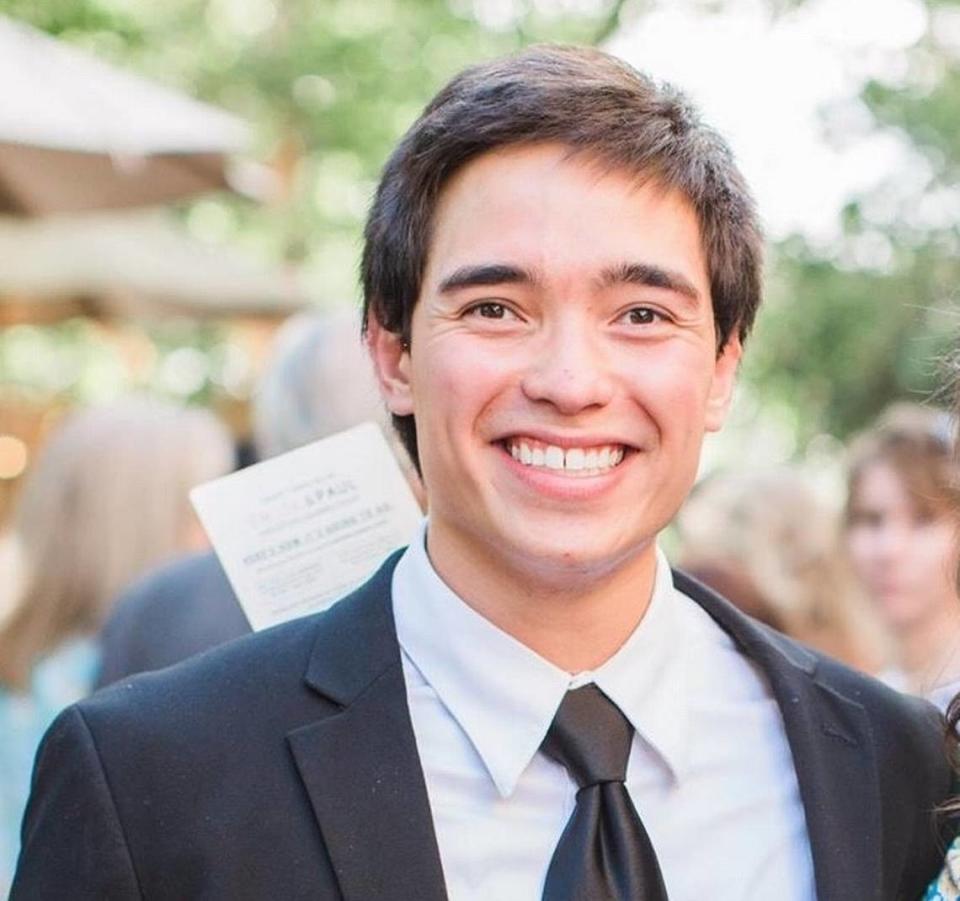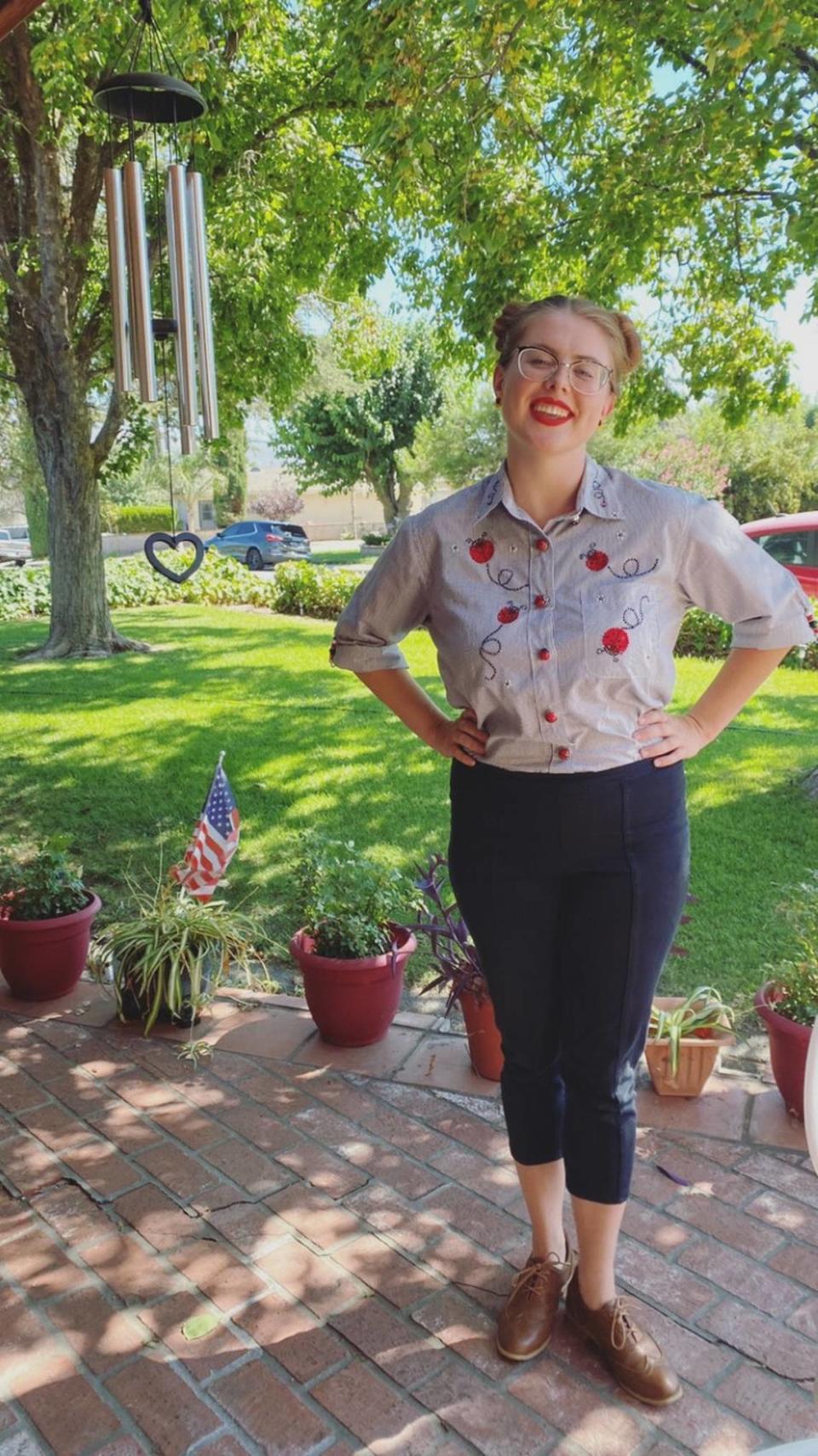An increasingly popular side hustle: Participating in research studies
- Oops!Something went wrong.Please try again later.
“Grootmoeder. Grandmother.”
A voice came over the intercom in the black soundproof room where Kaylee Daugherty was seated. The special education teacher’s head was covered in tiny electrodes, glued between pieces of her hair and held in place by a fitted cap, making her look like a swimmer from the future.
“Kip. Chicken.”
Through a small window she watched a University of California, Riverside, researcher read words to her in Dutch, followed by their English translations. She didn’t speak Dutch, but she did her best to memorize and recall the words while researchers analyzed her brain activity.
Daugherty walked away from the study, a part of her lucrative side hustle, with $50 for each session.
Over the past two to three years, Daugherty has participated in dozens of studies and trials as a way to supplement her income, and she’s found a growing online community dedicated to paid research participation in the process.
“It’s great because you could have your full-time day job and still do this,” she said. “This is something extra you can do any time of day, even in your pajamas.”
The studies Daugherty and other participants take part in range from 10-minute online surveys to months-long research projects that require daily check-ins. Compensation varies depending on the amount of time required and the invasiveness of the study.
Andrew HoTong, a University of North Carolina at Chapel Hill graduate, made $700 from a study measuring if certain vape flavors had an impact on a person’s pain tolerance. HoTong catalogued his nicotine use for months and went to a lab every few weeks for a series of mild pain tests. He had his blood drawn before and after every lab visit.
HoTong also participated in another study tracking his nicotine use for a month before having in-person tests. Researchers put him under anesthesia so they could evaluate potential irritation in his trachea. HoTong made $500 from that.
“A few extra hundred bucks in my pocket can help quite a bit,” he said. “It could even help with rent down the line.”

Facebook’s role
Other studies are lower-maintenance, requiring far less of a commitment from participants. Almost all of the studies Susan Ayala, a Realtor from San Diego, has participated in are online, allowing her to complete them from home.
Before routinely partaking in online research, Ayala worked as a rideshare driver to bring in supplemental income, a job that left her and her car worn down. The money she’s making from research is as good as from driving, she said, and she’s able to spend more time with her family. Ayala said she purchased all of her family’s Christmas presents in 2020 with the extra money.
While research studies can make for a profitable side hustle, finding studies or focus groups that match a person’s demographic data and price point can be difficult. For many, that’s where Facebook comes in.
Daugherty created a Facebook page dedicated to new available studies when she realized that people could make money from participating.
Her private group, “US Open Paid/Raffled Research Studies,” started with a handful of members in March 2019 and grew to about 200 in its first year. After the COVID-19 pandemic hit, her member count quadrupled to more than 800.
Daugherty’s group is one of dozens of Facebook pages dedicated to paid research opportunities, some of which have thousands of members.

UNC launches Research For Me
Potential participants can find studies by going directly to universities or research companies. About a year ago UNC-Chapel Hill launched Research For Me, a website dedicated to connecting researchers with potential subjects. The website allows users to narrow available studies based on criteria like gender, convenience and specific medical conditions.
“We really wanted to provide one central portal where any patient, member of the public and student can find studies that work for them,” said Emily Olsson, research program manager for recruitment and retention at the North Carolina Translational and Clinical Sciences Institute.
In the past few months, COVID-19-related studies have been some of the most searched openings on Research For Me, Olsson said, but the site also offers about 20 different search categories. Every study on the website is approved by the university’s institutional review boards, taking some of the guesswork out of deciding which study is worth a participant’s time and effort.
Using studies as a side hustle requires a not-insignificant time commitment. Tracee, Susan Ayala’s sister and a local government employee in San Diego, said she spends up to an hour every day looking for and participating in studies. But in an average month she brings in anywhere from $800 to $1,000 in payments and gift cards. In December 2020 she made $1,500.
Research comes with risks
While participating in research studies presents opportunities for extra cash, it also comes with risks for both the participant and the researcher. Some studies posted online are scams. Some don’t give subjects the compensation they were promised, while others look to gain information from its subjects.
Research subjects who routinely participate in studies can also pose a risk to researchers and the outcomes of their work. Researchers aim to gather data from a broad group of people, and having a small group of subjects participating in the same studies could potentially interfere with study results.
Research For Me’s Olsson said participants have to be thoughtful in deciding which studies to participate in.
“[Research] is a really great opportunity to give back,” Olsson said. “But we also want to make sure that folks are aware that when they sign up for a study it’s sort of a good faith agreement that you’re willing to provide quality data and complete the activities they’re asked to do.”
Still, Daugherty is glad that more people are learning about the side-hustle option that studies provide. Despite the bother of parsing out legitimate studies and pulling glued electrodes out of her hair, she plans to continue engaging with the research process.
“I think research studies are awesome for all parties involved,” Daugherty said. “It’s beneficial for science itself and you get to participate in this scientific process.”
UNC Media Hub is a collection of students in the Hussman School of Media and Journalism who create integrated multimedia packages covering stories from around North Carolina.
Despite aid programs, thousands went bankrupt in North Carolina as COVID-19 raged

